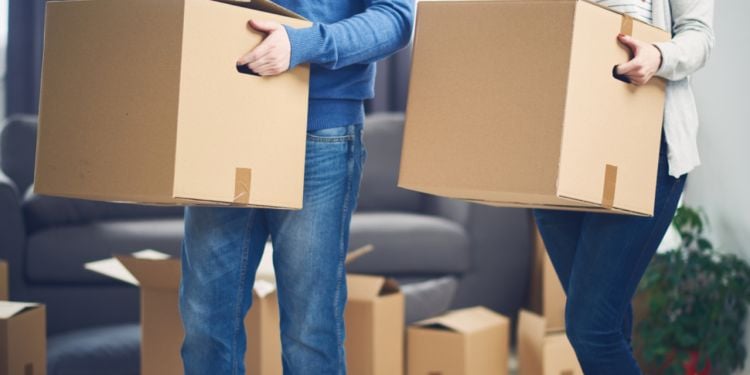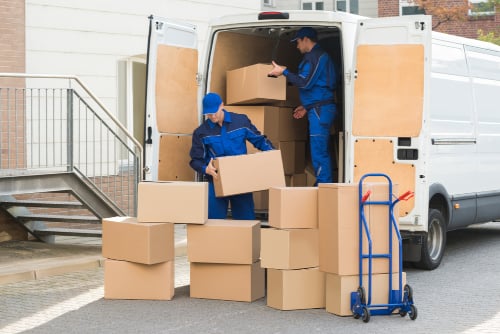
If you're a legal resident of Brazil, then you're permitted to import your personal and household items duty-free. However, there are restrictions as to the items you may bring in, and strict time limits must be observed. You need to understand the procedures involved, and are encouraged to work with an international mover with experience shipping to Brazil and to have an agent on the ground in Brazil to assist you.

Residency requirement
First, everything discussed in this article assumes that you've established legal residency in Brazil. If you don't have legal residency, these rules don't apply to you, and while you may be able to import all or most of your household items, you'll be subject to full customs duties on them. Also, your goods may be held at the port or point of entry, and you'll be subject to daily fees until they're released.
Note further that you must be either a new resident or a previous resident who's been gone from Brazil for a minimum of one year. This requirement is to prevent people from repeatedly bringing large quantities of items into the country without paying the requisite duties.
If your permanent residency visa hasn't been finalized, you can apply for a temporary suspension of your customs duties. Once you receive a permanent visa, you can then apply for a permanent exemption of your custom duties. However, you'll be subjecting yourself to additional bureaucratic steps and an uncertain outcome, so it's strongly advised that you secure a permanent visa before importing your goods.
What you can bring in
You may bring the following items to Brazil:
- Clothing and shoes
- Personal hygienic items
- Furniture and appliances
- Other household items
- Tools, machines, devices, and instruments needed to perform a profession
- Artistic, intellectual, and other works produced by the new resident
- Books and magazines
While the exact quantity of items isn't specified, they should be reasonable and commensurate with personal use.
Important:
Goods must be shipped from the same location from which you'll be arriving. You cannot, for example, arrive from the UK but have items shipped in from Panama.
If you arrive separately from your shipped goods (for example, you ship a container by ocean freighter and you yourself fly), then you may also carry in the usual amounts permitted by customs regulations, but not more.
Good to know:
You may wish to bring in household appliances such as a washer and dryer. While available in Brazil, they tend to be both expensive and of inferior quality. Furthermore, be sure that you verify the voltage of your intended home in Brazil, as in some locations, it's 127 V and in others, 220 V. Bring any transformers which might be required.
Important:
You may not import your used automobile. While brand-new automobiles may be imported, they aren't exempt from duties, and also may fail Brazil's fairly stringent fuel consumption restrictions. You're strongly advised to simply purchase or lease a car in Brazil.
Items to note
While most belongings won't be taxed, there are still some that might. In addition, you might need special permission to import certain things, such as medications (this requires an official prescription).
Here are the things you should reconsider bringing:
- Foodstuffs and beverages, including alcohol (50% import duties)
- Cosmetics (50% import duties)
- Firearms (you may need approval by the Brazilian Army before you depart)
You're forbidden from bringing the following items:
- Food items
- Stamp collections
- Live plants
- High-value coins
- Tins
- Drugs/narcotics
- Flammable/corrosive items
Documentation and timing
Before arranging shipment, you should confirm the key dates so that you don't miss any important deadlines. In particular, be aware that goods you ship shouldn't arrive in Brazil more than three months before you do, nor more than six months after you do.
You'll need to complete and supply several documents, and it's recommended that you work with an agent in Brazil who understands the process well. The principal document you'll need to complete is termed the Declaração Simplificada de Importação (Simplified Importation Declaration). You can find the form and instructions here on the official government site. To avoid potential issues at arrival, you should complete this form before leaving for Brazil. If you have any questions, you may wish to contact the Brazilian Consulate serving your area. Other documents that are required (or good to have, to avoid potential snags) are:
- Three certified copies of your passport, including all pages. You can obtain these certified copies from a notary (termed a cartório) in Brazil.
- Three certified copies of your airline ticket on which you entered the country.
- Three copies of a complete inventory, in Portuguese, with an estimate of each item's current market value in US dollars. For appliances, computers, and other electrical devices, record model numbers and serial numbers if applicable. Remember to sign and date these inventories.
- Proof that you haven't lived in Brazil within the past year. You can use your passport, utility bills, etc.
- Three certified copies of your CPF (tax ID) card and RNE (residence card).
- Three certified copies of a power of attorney if you're using an agent to handle your move.
Insurance
The shipping company you select should provide some level of insurance, but ask for details. In case of loss or damage, will you receive full replacement value? What eventualities are covered, and what aren't?
It's a good idea to make a detailed inventory, not only for the Brazilian authorities, but also in case you need to file an insurance claim. If appropriate, take photos or videos of the items.
Final step
Finally, you'll have to sign the consignment form for the loading and delivery of your belongings. This form contains details such as the terms of the contract, the mode of transport, the volume transported, the name and address of the client and the transport company, etc. Once you sign this letter, the mover gets your approval for loading and will terminate your contract upon delivery.
It's common to pay for relocation costs in two halves. The deposit is generally paid during loading while the balance is paid upon delivery.
Good to know:
You should verify the list of documents required with the Brazilian Consulate serving your area. They could also advise you about permitted and banned products. Also, as Brazilian bureaucrats exist to find mistakes, you'd be advised to enlist the help of an agent in Brazil.
Useful links:
We do our best to provide accurate and up to date information. However, if you have noticed any inaccuracies in this article, please let us know in the comments section below.








